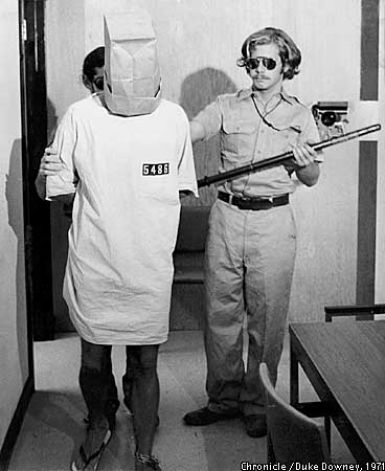+ MRouge+: Labour Migration and Rejection from Jobs
JWren:
Why the Victorian election was a farce...
Andrea:
An Epic Tale of Good Versus Evil
When I was younger, like so many I grew up with stories from those from the older generation(s). Of particular note for me was paternal grandfather who had some extraordinary stories based on real life. The greatest story tellers of my life, weren't afraid to embellish their stories; drawing on real life stories and just making it slightly more exciting than it otherwise would be.
I've had a very long week working this week and haven't been able to clear my head, read up on current affairs and really don't have much to write on. Plus considering Christmas is so close ,I think I might go back and write something lighter. Its interesting because the posts I use to write, use to be exactly this, a whole bunch of cool stories.
Every year, the university calender is littered with "balls." No, that's not a euphemism. Balls are just dances with less formality, a little more emphasis on fun and a good night out. I think every year, I've attended two, most of which I've organised. The success and enjoyment of each of them have varied but there is one particular one that sticks out in my mind.
 |
| Balls |
This particular ball was in my second year at university. Out of the all the balls I've been to, this was the only one that wasn't a Melbourne University ball and one of the few I didn't organise. One of my friends organised it and asked me to come. To be honest, I think I was just filling up numbers but regardless, I didn't mind going; any chance to share a drink with friends and meeting some people.
Balls are usually themed and the amount of effort that's put into fulfilling the theme varies between ball to ball. Sometimes, they're very loosely used; just an excuse to wear a suit and for the girls an excuse to wear a nice dress. Others, are a lot less formal; onesies, full costumes of sea animals, game characters, characters from the future all spring to mind.
 |
| Terrible movie |
The theme for this particular ball was "Midnight in Paris." Which, for that year, wasn't unexpected considering the movie had just come out. Me, having never enjoyed costume wearing/making just wore the same suit I do to all the balls. I think everyone else made some sort of effort but you know, I'm a fun hater.
When I first got there, it was striking how well decorated the venue was. The lighting and the theme was well matched . We all sat down and exchanged some pleasantries and you know, all the usual thing normal people do. At some point I went to the bar.
Part of the fun of balls is the free flowing alcohol. I mean, half the cost of any ball is the free flowing alcohol Its important for me as an University student and as Jackson Chen, it was important to get the most value out of any dollar. At the bar, there was a limit of two drinks per person.
Me, trying to get the most value out of the night took two drinks, even though really I was only going to need one. But you know, whatever. Found the most expensively looking drink and asked for it. A mixed drink called something sunrise. Or sunset, or something. It doesn't matter.
Weaving my way back to the table, drink in hand one of the girls (I didn't know) exclaimed where'd you get that!
In all good stories, the main character are detailed in long descriptions. I would like to give you this description but I honestly can't remember much. Not going to lie, pretty good looking though... We're going to call her Amy. Mostly because I don't know any Amys so no one can be offended.
In typical snarky Jackson style I replied.
> "At the bar."
>>"What's it called"
>"I dunno."
*short pause*
> "Would you like it?" *Offers said drink*
>>"Have you drunk from it?"
>"No"
>>Proceeds to take it from my hand. "Thank you"
 |
| Many Decorations |
You know, looking back, I never got to taste that drink. It was a very girlie looking drink anyway. Definitely not a burly big man like me.
(You know she probably knew exactly what drink it was, just didn't want to get up and get one. I don't believe I fell for that.)
The ball was certainly different from all the other balls that I'd been to. Being an 'other' University's ball, I saw a lot of high school friends there who I hadn't seen since graduating. It was nice catching up with them and seeing some other friends. There was a girl there who I hadn't seen for a very long time, where when we parted, we left a few things unsaid and it was nice seeing her again. Actually thinking back, we still left a lot unsaid between us.
Much alcohol
Anyway, I digress. I drank a lot, danced a lot and then drank some more. Again, looking back I don't remember a lot (which is unusual for me). I remember dragging friends on to the dance floor (because woo dancing), taking photos and using the toilet several time. I remembered being particularly tired after a long stint on setting the the dance floor on fire with some massive moves. The girl who had taken my drink, was also at the table sitting down.
So we started talking. I really, really wish I remembered all the things we talked about. I remembered her telling me about her cousins? Where she was staying after the night finished? I don't remember whether I decided to be obnoxious Jackson or charming Jackson. Probably obnoxious. I feel like we talked for ages but honestly it was probably 20 minutes? It was a good chat though, always good to have intelligent conversation with people you don't know well. They don't have pre-conception and misconceptions which these days is a real luxury to have. The conversation was honestly, very interesting and rather intense. I still remember bits and pieces. Alcohol infused conversations are the best.
As the night winded down, my friends filtered back to the table and Amy asked me whether I was going to the after party.
There's not a lot of things I don't like. Okay, thats a lie, there's a lot of things I don't like, but one of the things I don't like is clubbing.
>"Nah, I don't think I will"
>> Various back and forth as to why I don't want to and her saying why clubbing is great. (its not)
>>"Well, I'm going to get changed, but I'm coming back and when I'm back I expect you to be ready to go"
>"Um ... sure."
 |
| Such Wow |
So she goes away and the friend who invited me started teasing me and egging me to go. You know how it is between guys. I had had a fair bit to drink at this point, but and there was still alcohol to be consumed to ensure the greatst value for money was achieved. I wanted to talk about anything but what I was doing for the rest of the night. But he was very insistent.
After 40 minutes of, "so are you going?" or "What did you talk about" or " why don't you want to go" or " Come, don't be a fun hater" I got sick of it and said
"Its been 40 minutes. If she comes back, which I highly doubt, I'll go, but you need to shut up and let me enjoy my beer."
Of course, as soon as I say that, Amy creeps up behind me and goes, "alright lets go, Jackson." Ok, creeps up is a bit of a strong word. Seriously, was it unreasonable of me to assume that she wasn't coming back after 40 minutes? Who needs 40 minutes to get change. I don't even.
Change
Now one of my biggest pet peeves is people not doing what they say they're going to do. I give my friends a lot of grief for it, so I not wanting to seem like a hypocrite I went. There was a bus to get there, and guess who I was left alone with to go to the club with. We just talked some more. Not going to lie, the conversation was pretty interesting. That conversation I remembered.
When I got there, there was apparently an entry fee, even though there wasn't supposed to be. As soon as I saw that, I made my apologies and left. After all, all I said was that I was going to go. I didn't say I was going to stay. That 40 minute detour cost me the last train home, meaning I had to split a wonderously expensive cab ride home. Slightly anti-climatic I know.
At the end of the day, that ball was probably the most enjoyable ball I've been to. It was nice, relaxing and I met some good friends. There were some conversation that night, that were absolutely magical, that I don't expect on having again anytime soon.
Story telling is something different. I exaggerated a lot of what happen and combined a few stories together to make something readable. What happen afterwards and which bit I did and did not exaggerate is up to you. Because every story needs a little mystery.









